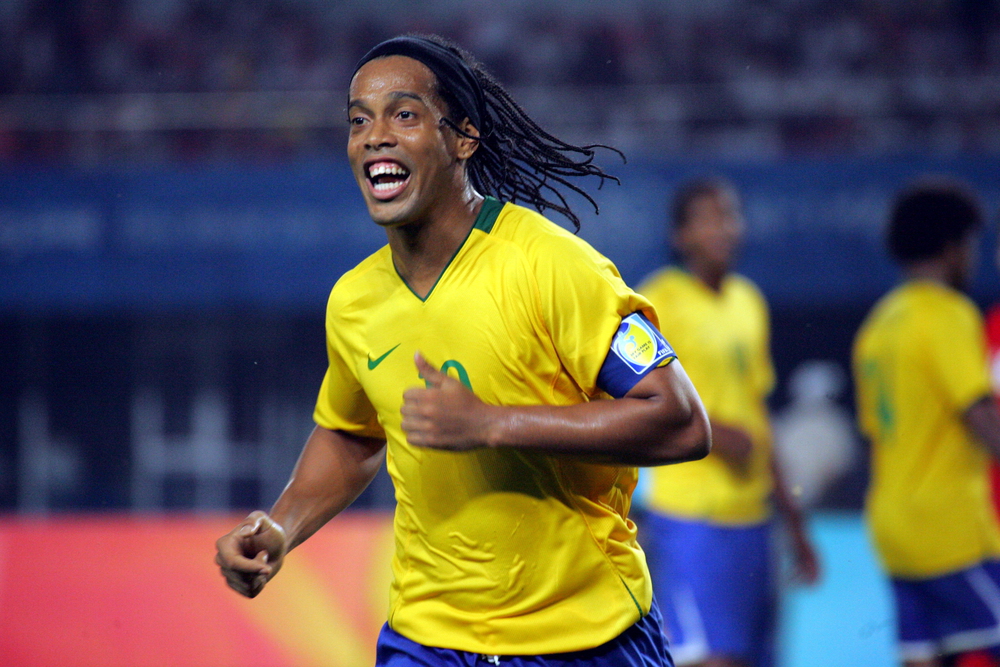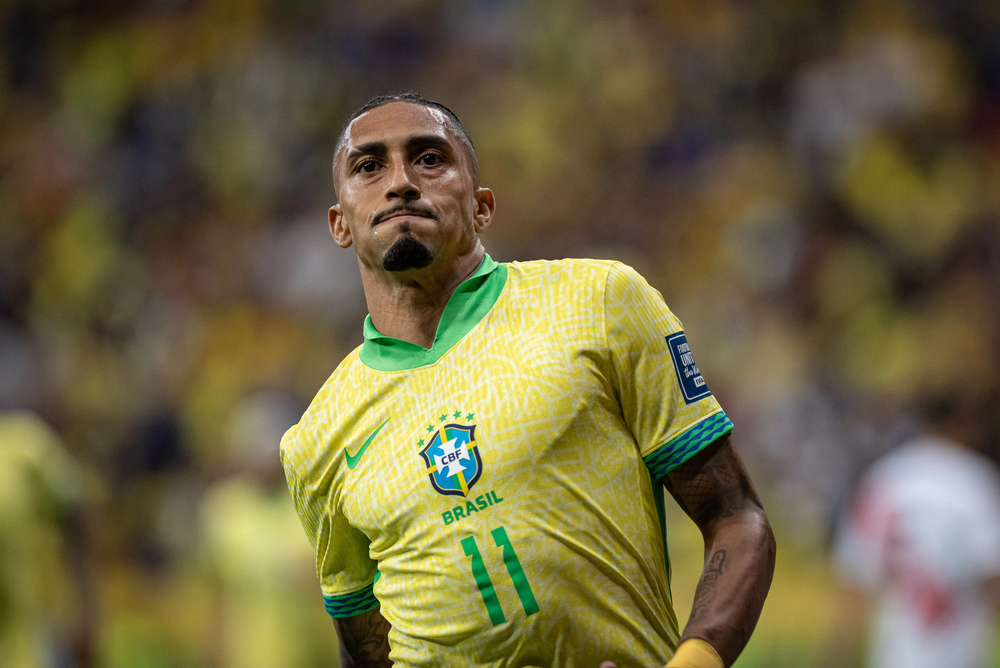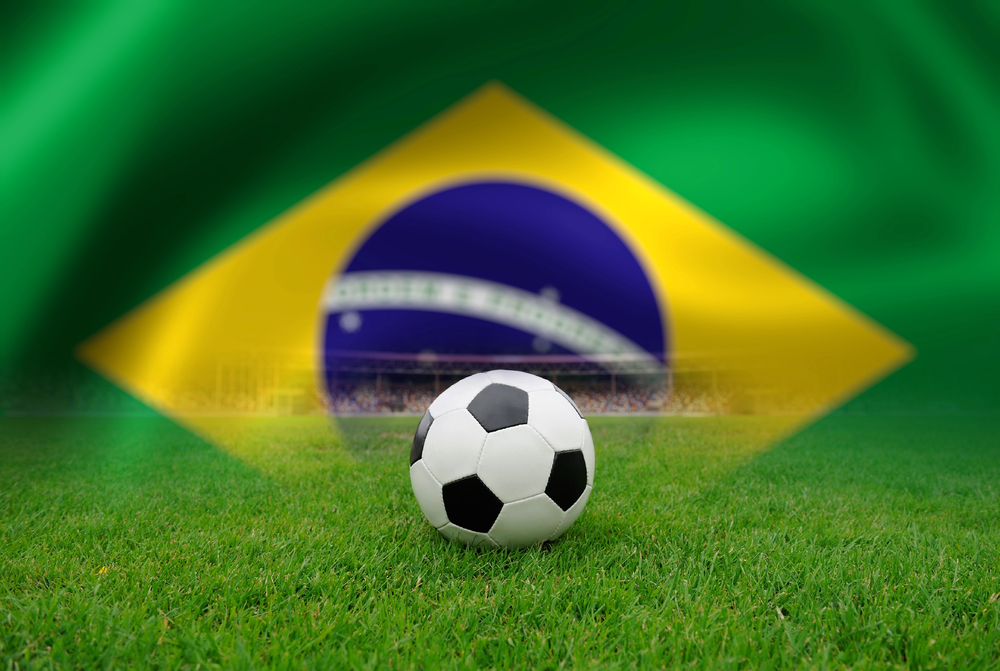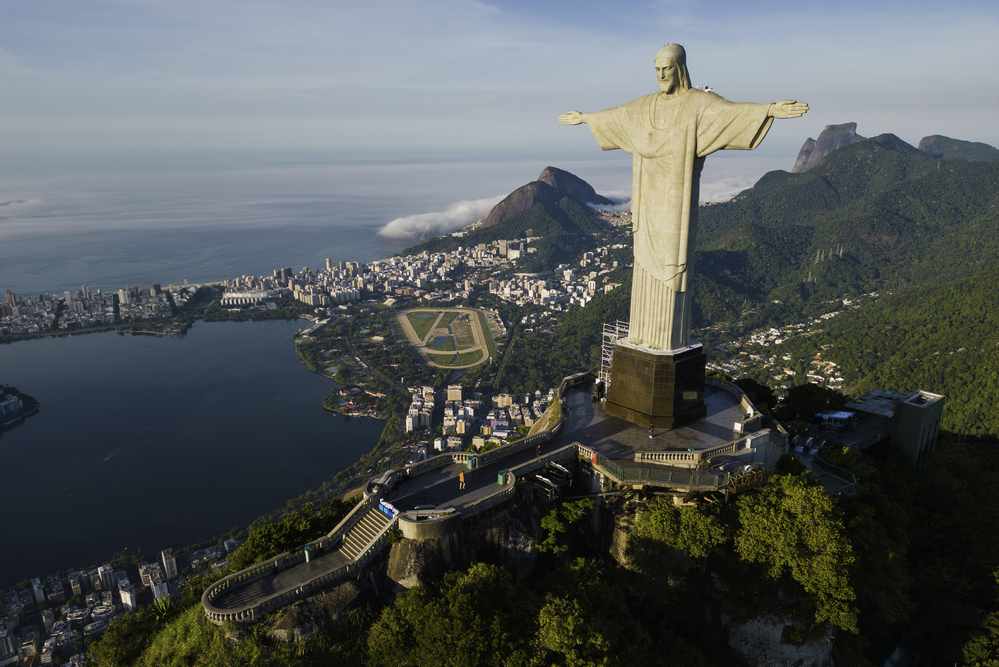Football is a national passion, and when the Brazilian national football team takes the field, it is seen as the “pátria de chuteiras” (nation in cleats), such is its importance and meaning for Brazilians.
Here, we will explore everything about the Brazilian national football team. You will discover the entire history and trajectory of Brazil’s football teams and their relationship with the Brazilian people.
General Aspects of the Brazilian National Football Team
The Brazilian team is known to us, Brazilians, as the seleção canarinho, a reference to the canary bird, most likely due to its yellow color, as the origin of the expression remains uncertain.
The seleção canarinho is the only team in the world to have participated in every edition of the FIFA World Cup since its inception in 1930. This achievement is a source of pride for Brazil, reinforcing its position as a football powerhouse.
Moreover, Brazil is the most successful team in the competition, with five titles: 1958, 1962, 1970, 1994, and 2002. Each victory carries memories that unite generations, like Pelé lifting the trophy in 1970 and Ronaldo Fenômeno’s goal in the 2002 final.
The team’s uniforms are also iconic. The vibrant yellow of the main jersey represents the joy of the Brazilian people, while the green symbolizes our natural wealth. The blue, present in the alternate uniform, adds a touch of serenity but with the same strength and determination.
Brazil’s playing style, marked by skill, creativity, and audacity, has captivated the world and popularized the famous “futebol arte” (art football). Names like Pelé, Garrincha, Zico, Romário, and Neymar illustrate how talent and passion shape the team’s identity.
The relationship between the people and the team goes beyond the pitch, reflecting dreams and hopes renewed with each tournament.
The Trajectories of Brazil’s National Teams in Competitions
Brazilians have always had the opportunity to watch their country participate in major competitions. In many of these, the team etched the beauty of its football into history. Let’s take a closer look at these journeys.
Brazil’s Journey Through the World Cups
The Brazilian national football team has a unique history in the World Cups, filled with unforgettable moments, historic achievements, and lessons that shaped its trajectory. Since the tournament’s first edition in 1930, Brazil has been present in every edition, the only country to achieve this feat.
The early years were a time of learning. During the 1930s and 1940s, Brazil was still striving to establish its football on the international stage. But in 1950, as host of the competition, the team captured the world’s attention, though the ending was marked by the painful defeat to Uruguay in the infamous Maracanazo.
The first title came in 1958 in Sweden, with Pelé and Garrincha mesmerizing the planet. In 1962, in Chile, Brazil demonstrated its strength by winning the championship again. By 1970 in Mexico, the team led by Pelé, Tostão, and Jairzinho showcased magical football, securing the third title and becoming one of the greatest teams in history.
After a long drought, Brazil shone again in 1994 in the United States, defeating Italy in a penalty shootout. In 2002, led by Ronaldo, Rivaldo, and Ronaldinho, the team clinched the fifth title in Asia. These moments solidified Brazil as the most successful nation in World Cup history, with five titles reflecting the passion and talent of the Brazilian people.

Brazil’s Journey Through the Copa América
The history of Brazil’s national football team in the Copa América is marked by ups and downs but also by moments that underscore Brazil’s greatness on the international sports stage.
While the World Cup is the team’s main stage, continental competitions were also fundamental in shaping its trajectory and reaffirming its supremacy in football.
In the Copa América, Brazil participated in the first edition in 1916, when it was still called the South American Championship. Despite a modest start, Brazil gradually established its presence in the competition.
The first title came in 1919, at home, with a victory over Uruguay, in a tournament that ignited the nation’s passion for football. Over the decades, the team alternated between dominance and difficulties, especially against traditional rivals like Argentina and Uruguay.
From the 1990s onward, Brazil began to stand out more consistently. With a talented generation, it won the Copa América in 1989, ending a 40-year drought. This was followed by other memorable titles, such as in 1997 with a team led by Ronaldo and Romário, and in 1999, when Rivaldo and Ronaldo shone. In total, Brazil has won nine Copa América titles, solidifying its position as a force in South American football.
Brazil’s Journey Through the Olympics
In the Olympics, Brazilian football followed a different path. Despite being a global powerhouse, the Olympic gold medal was an elusive dream for decades. Since football was included in the Olympic Games, Brazil has consistently fielded competitive teams but faced significant challenges.
Silver medals in Los Angeles 1984 and Seoul 1988 showcased the team’s potential but left a bitter taste from decisive losses. The 1990s brought the first bronze medal in Atlanta 1996, with players like Ronaldo and Bebeto. In London 2012, Brazil, led by Neymar, seemed destined for gold but was defeated by Mexico in the final.
It was only in 2016, at the Rio Games, that the golden dream finally came true. In front of its home crowd at the Maracanã, Brazil defeated Germany in a dramatic penalty shootout, bringing joy and relief to the nation.
In 2021, at the Tokyo Games, Brazil secured its second consecutive gold medal, reaffirming its dominance in recent Olympic football. This achievement marked another milestone in the team’s history, highlighting the strength of new generations and the continuity of Brazilian talent.
With a journey that combines glory, challenges, and redemption, Brazil’s national team has shown that its legacy goes beyond the World Cups. Whether in South America or on the Olympic stage, Brazilian football continues to be an expression of creativity, passion, and joy.
What is the Best Brazilian Team of All Time?
This is a tough question, as each generation is marked by a team that became a reference as the best Brazilian team of all time. For example, I was shaped by the team that won the 2002 World Cup and have no memory of earlier teams.
But I won’t take the risk of choosing the best myself. Instead, I’ll leave this debate to commentators and experts in the field.
There isn’t a definitive answer, but the discussion often revolves around the teams of 1958, 1970, 1982, and 2002. Each of these featured football legends and achieved impressive records.
The 1958 team included legends like Pelé and Garrincha. In 1970, there were Pelé, Rivellino, and Tostão. The 1982 team had the legendary Zico. Finally, the 2002 team featured Ronaldo, Ronaldinho Gaúcho, Rivaldo, and Kaká.
See how tough this choice is? But if we must choose one, it’s often said that the best Brazilian team, according to sports experts, is the one from 1982.
When Did the Brazilian Team Last Lift a Trophy?
The Brazilian team has been performing well below Brazilians’ expectations. Accustomed to first-place finishes, recent losses have been bitter and frustrating.
You might think this seems odd since the team won Olympic gold in 2021, which is quite recent, and the Copa América in 2019, also fairly recent. Yet, the feeling of disappointment remains.
Brazilians place special importance on the World Cup, and our last title in this competition was in 2002. In other words, we have endured a drought of over 20 years for this coveted trophy. Since then, the team has failed to deliver satisfying performances or enchant fans with its famed futebol arte.
The Current Brazilian Team
Currently, the team is managed by coach Dorival Júnior. Dorival is a seasoned professional, having coached several Brazilian clubs, such as Cruzeiro, Flamengo, São Paulo, Fortaleza, and others.
Player selections have sparked controversy and dissatisfaction among fans, especially due to the persistence of some underperforming players and others who lack fan confidence.
Among the players, Vinícius Júnior has stood out, even being considered one of the world’s best players. However, for the national team, he has yet to meet fans’ high expectations.
Meanwhile, questions loom over Neymar’s future, Brazil’s most famous player today. Recovering from an injury, Brazilians are unsure about his contribution to the team.

Conclusion
The Brazilian national football team is more than just a team: it is a symbol of national identity and passion. Every victory, defeat, and memorable play reflects not just the players’ skills but also the spirit of a people who live and breathe football.
From Garrincha’s dribbles to Ronaldo’s sprints and Neymar’s flair, the team’s journey is a mosaic of moments that unite generations and inspire dreams.
Although the team’s recent performances haven’t met the high expectations of the past, the hope for brighter days remains alive. Brazilian football constantly reinvents itself, discovering new talents and preserving the style that captivated the world.
The Olympic gold in 2016 and Copa América victories show that, even amid challenges, the team remains competitive.
The question of the best Brazilian team of all time may not have a definitive answer, but one thing is certain: each generation has left its mark, enriching the history of world football. Whether on Sweden’s fields in 1958 or in Japan’s stadium

